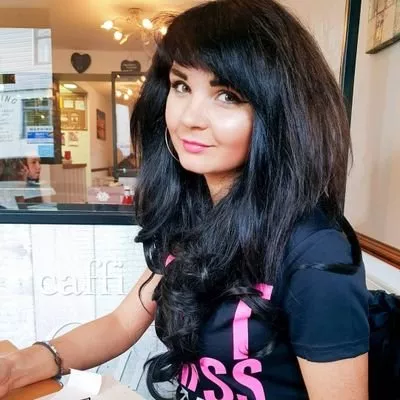
Natalie Holborow, 32, a marketeer and poet from Swansea was diagnosed with type 1 diabetes when she was eight years old. She shares her experience.
She said: “It was a confusing time to be diagnosed - the doctors used long words and I had to rely on trying to decipher the facial expressions of medical staff and parents to realise that this was serious.
"The day of diagnosis is still painfully sharp in my mind - the distress of not being able to draw blood from my small hands and their collapsed veins, the small and brightly coloured insulin pen that was pressed into my fist, the sterile smell and cold green of hospital corridors.
"The bold Disney murals became somewhat ironic as I lay there, all bony angles on a hospital bed, being told that I had to endure injections and squeeze little beads of blood from my fingers for the rest of my life.”
The burden of a 24/7 condition
Natalie copes with her type 1 diabetes by writing poetry, running and using a Medtronic insulin pump.
“However, I still get days when I cry and I'm exhausted from it all. I try to stay as positive as I can, but I would be lying if I said that you can positive-think your way out of the sheer burden of this 24/7 condition, and some days I do just have to let myself cry.
"I think it's important to let yourself grieve the life you had before diabetes, even if for me that's as far back a memory as being little and sitting on the beach, eating ice cream and slurping a Coke without having to calculate carbs and insulin units.
"What affects me the most is the lack of spontaneity. I can't just roll out of bed and go for a run if I've woken up with a hypo or my sugars have been high for a few hours and I'm too exhausted. It also makes it difficult to concentrate some days which is a pain”.
Good care and support from work and diabetes online community
Natalie always had good access to care and a close relationship with a nurse, who supported her when she was struggling. Lockdown, however, was hard, as her annual review was replaced with a short 10-minute online consultation, which made her feel “resentful and lonely” during the pandemic.
Her employers have been supportive and offer hybrid and flexible working, which allows for Natalie to work around her highs or hypos, so she can be productive.
“The @gbdoc community on Twitter were amazing in lockdown and have continued to be a great source of support. I love how social media has made this more accessible - I feel a lot less alone as a result. They're all refreshingly honest, reminding me that nobody is perfect and we're all just doing our best every day” she added."
Specialised psychological services are missing
“There's a gap here and we really need to see diabetes as a condition that requires mental support as well as physical. Insulin helps your body but we need so much more to help the sheer stress that happens in the mind.
"Eating disorders and depression are so common in people living with diabetes. I received good psychological support 10 years ago but that was focused on an eating disorder, not on diabetes. Having to see foods as 'good' and 'bad', along with the constant counting and negative body image (and for me, bullying at school) meant the perfect storm for developing an eating disorder. This came with more stigma and shame..
"I get so tired of being shamed for my condition. I never asked for it. I don't need people making judgements on food choices or telling me I'm a "bad diabetic" if I get a blood sugar reading that's out of range - trying to do the job of your own pancreas 24/7 is actually really, really hard. People don't seem to realise that.”
“If you're supporting a friend or partner with diabetes, don't forget to ask them how they're doing mentally not just the numbers on their blood glucose monitor. Just knowing that we have support and someone to talk to can mean the world."
